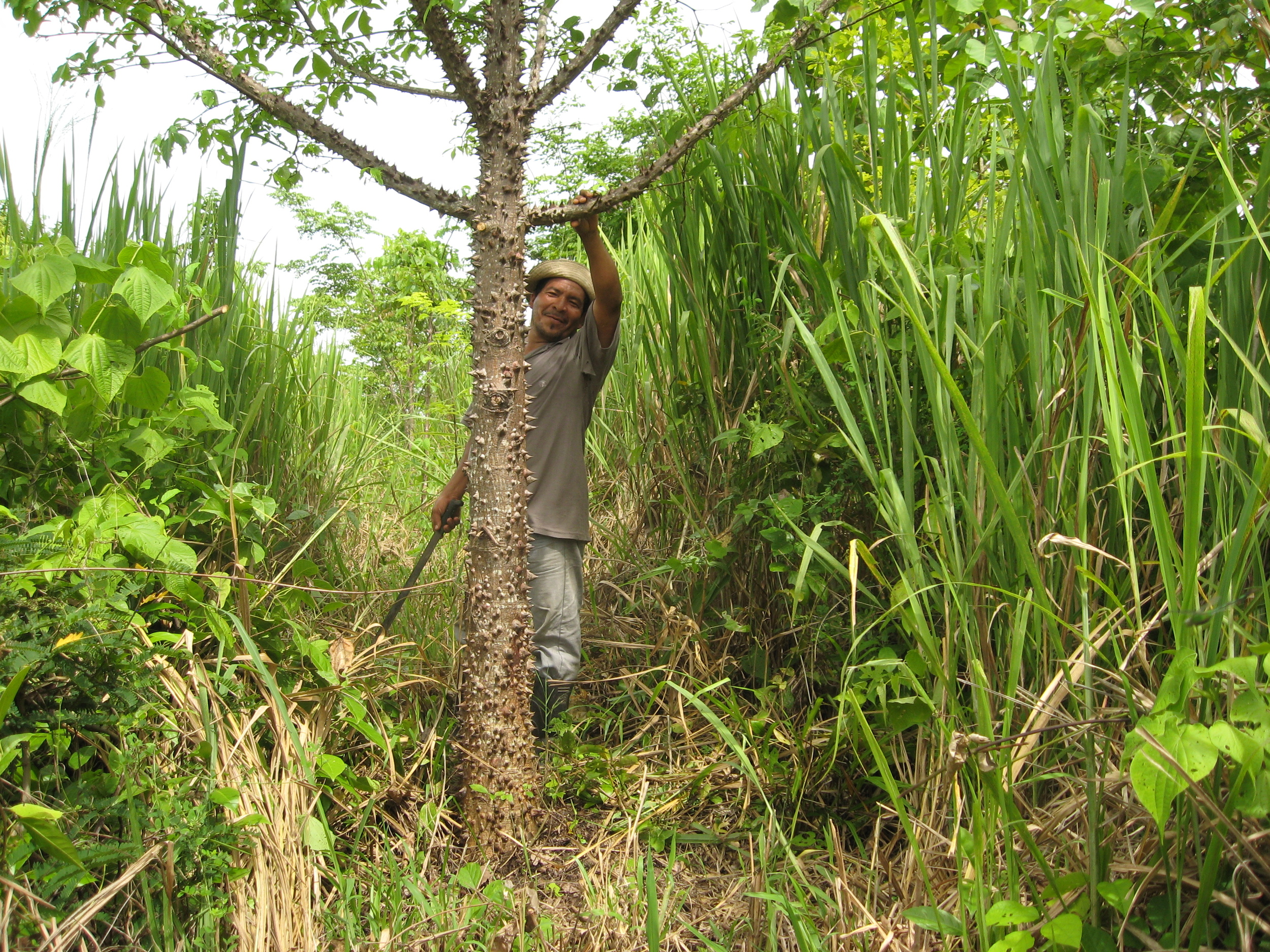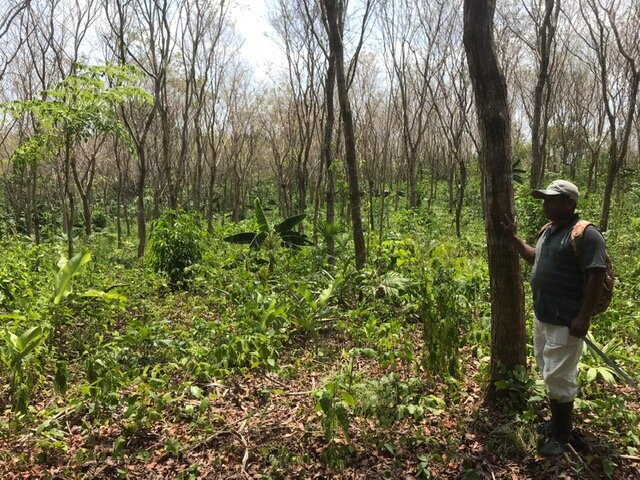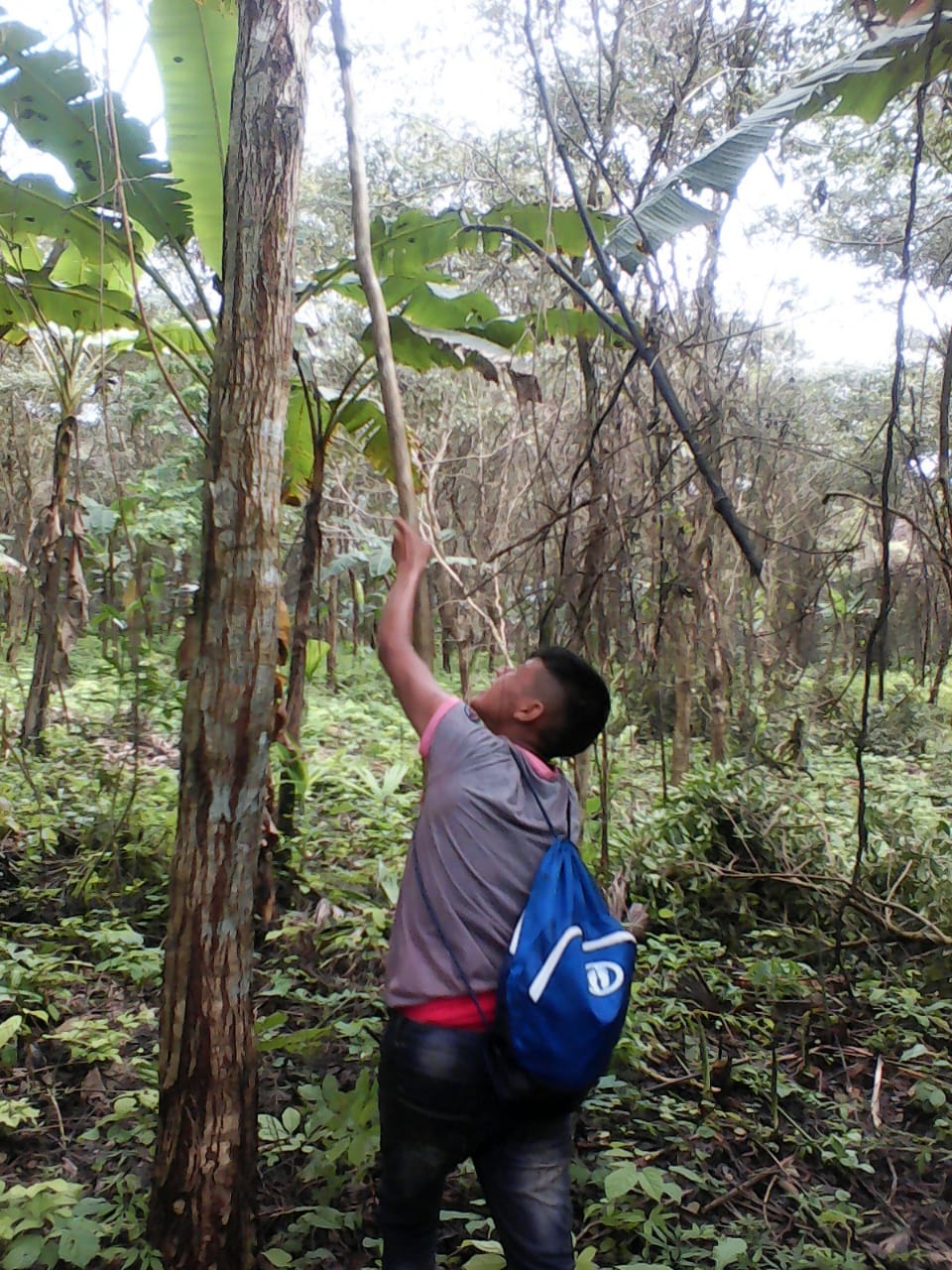The smallholder farmers and indigenous communities we partner with practice slash and burn development, which involves logging and clearing tropical forests. Through subsequent subsistence farming and cattle ranching, the land loses further fertility, and becomes more difficult and capital intensive for a smallholder to work. At this point, the farmer may begin to look for another plot of forest to settle.
Monoculture timber plantation businesses and big agricultural projects worsen the problem by buying up this degraded land and driving settlers further into the forest.
Typical plantation forestry businesses displace subsistence farmers, encouraging deforestation. Click for a larger view.
Long term land leases
To address this, Planting Empowerment works through long term land leases. These leases encourage smallholders to retain their land by easing their financial dependence on migratory development and demonstrating the potential of forestry as an alternative. Once the 25 year leasing period ends, the land returns to the partner, who can choose what to do with it.
Culturally acceptable approach
New ideas about land management are often met with skepticism, so we based the leasing structure off of established practices. Short-term land leases for cattle grazing or a single crop cycle are routinely used in rural Panama, and extending the leasing period to 25 years for forestry is our version of that practice.
Recognizing that traditional subsistence practices must be respected, we only lease parcels of land that are already deforested and undervalued. Our goal is that smallholders see managed forestry as an integrated part of their overall land management.
Our Equitable Forestry model integrates the community in a sustainable way
Indigenous land
For indigenous communities, land is a central part of their ethos. Without land, most indigenous peoples would consider themselves on the pathway to extinction. Leasing is a way to gain access to their land while respecting their culture and way of life.
With our indigenous partner Arimae, there is a larger upfront lease payment so that the community can invest in parallel or alternative income-generating activities. More importantly, after the land returns to the community at the end of the lease period, the community can start a new plantation cycle fully owned by the community agricultural association.
Land management planning is important to indigenous communities. As such, Planting Empowerment works closely with the community to select the most appropriate plots for forestry projects.




